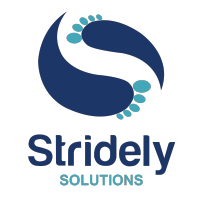In this developing business world, organized analysis of last data patterns assists in building various business tactics for future operations and helps serve the customers better. Businesses use data analytics to perceive their customer choices better, stay competitive and maximize profit.
Analytics provides a driving edge by recognizing the ever-changing business needs and customer demands to take relevant action to remain competitive in the market. It helps to store, interpret, as well as process old data to fulfill clients’ needs. For massive data analysis, company executives are always interested in the return on investment and various tools to generate actionable insights from multiple data sources.
Cloud Analytics: An Overview
Nowadays, cloud analytics has become a valuable tool in the business community as the total amount of data continues to ascend. It has various advantages for businesses, as:
- It uses various analytic algorithms in the cloud to deliver an outcome of the client’s interest.
- It deploys scalable cloud computing and robust analytical software to recognize data patterns and extract valuable business insights.
- It helps businesses to improve organizational performance and gain an advantage over their competitors.
Importance of Cloud Analytics
Cloud analytics is a blessing for companies with fluctuating analytics needs and who can’t afford or don’t want on-premises data storage. The business data processing involved in the analytics is performed on a public or private cloud to evade the need for on-premises business data storage, hence reducing the operating costs and administrative burden of managing hardware.
Companies can also make use of the hybrid model where some of the functions can be used on on-premises, and the remaining can be transferred to a cloud.
Cloud analytics uses various industrial applications such as scientific research, business intelligence, and many more in association with artificial intelligence, deep learning, and machine learning. These analytics approaches help organizations to create data-driven decisions and achieve improved efficiencies in their products and services. The cloud offers a software ecosystem to build AI applications and allows experimentation of business ideas employing proofs of concept (POCs).
PoC – Smart Recommendation System
Getting Started with Cloud and Cloud Analytics
Companies can choose cloud storage based on their business needs. A company has three options to pick its cloud storage:
Public Cloud
A public cloud allows multiple users to share the network publicly, ensuring total data privacy. Users can publicly access the storage and processing on public cloud data, and it follows a multi-tenant architecture that shares cloud storage with other companies. Although different companies share cloud services, every single data and application are not visible to the other.
Private Cloud
A private cloud is exclusively for only one company with an exclusive IT system and data. It is ideal for companies that look for a very high-security system for their business data, such as banks.
Hybrid Cloud
A hybrid cloud integrates public and private cloud, suitable for a company with a few sensitive data requirements. Moreover, companies can move their less sensitive data to a public cloud while retaining sensitive data in a private cloud.
Also Read: How to Accelerate Time to Value for your Hybrid IT Strategy with Microsoft Azure?
Make the Most Out of Your Data
Cloud analytics performs the analysis on a software system hosted on an internet platform. The massive business data gathered around the globe is growing exponentially and is getting pooled in the cloud. Various companies like Amazon and Google have their own data centers with powerful servers to manage cloud services.
Computing platforms like Microsoft Azure and Amazon Web Services support cloud-based analytics tools. The business data is collected and stored on the cloud and is accessible from anywhere and anytime.
Like on-premises analytics, various algorithms are put into huge data reserves to recognize the data patterns, bring out the helpful information from that data, and foresee future outcomes.
How will Cloud Analytics help your Business?
Cloud analytics helps companies to implement and manage data analytics for their stakeholders. The users can access data from any approved device and focus on the data insights to make more informed decisions. These days more organizations are utilizing cloud analytics to launch and scale their business analytics solutions. Significant benefits of cloud analytics include:
Scalability and Cost saving
Hosting on-premises analytic solutions demand the big-budget upgrade of existing IT capacity to fulfill the requirement of extra storage capacity. Use of the cloud analytics helps businesses to be upscale by buying storage and computing resources from the cloud service provider. A hybrid business analytics solution is beneficial for companies who want to leverage the cloud to assess new projects before making a considerable investment.
Maintenance
In data analytics solutions, all updates and upgrades are automatically executed. So the companies don’t need to deal with the maintenance related to on-premise servers.
Security and Governance
The leading cloud providers make use of advanced security features ensuring high-level security of business data. Now businesses can set up their admin control, secure their analytics with data encryption and conduct frequent assessments.
Data Accessibility
Cloud deployments offer business insights to any device with an internet connection, anywhere and anytime. It leads to improved collaboration among colleagues by allowing them to view and share analytics outcomes.
Data Availability
Most of the cloud providers assure 99.99% of service availability. The fault-tolerant systems of the cloud services ensure no analytics disruption, even in case of unplanned downtimes, natural disasters, or unforeseen events.
Critical Capabilities of Cloud Data Analytics Platforms
There are numerous cloud analytics solutions available in the market to choose from. However, choosing the one for individual business needs can be challenging. Some features to look for while choosing one for your company are:
Truly Cloud-based Analytics
If, to create the data analytics, you need local software; then it is not cloud analytics. Cloud analytics ensures a better user experience and a high level of data security.
Third-party Data Consolidation
Cloud analytics enables companies to collect, integrate and analyze financial data from third-party sources for better insights.
Accessible and Readily Available Data
To access cloud analytics solutions, users don’t have to be coding experts. It offers easy access to data and helps to explore and analyze the same without any limitations.
Flexible, Governed Collaboration
A trustworthy cloud analytics platform permits the users to easily assign and change user permissions, ensuring high data security. It makes sure that the only right people have access to relevant data.
Capability to Share on Any Device
The ideal cloud analytics solution offers a comprehensive experience and accessibility from any device, laptop, or smartphone.
Using SaaS Software for Cloud Analytics
It’s also an option if you are looking for a low-cost alternative to self-hosted or managed cloud services.
SaaS helps businesses over internet to provide cloud analytics services to other users/businesses by making their solution accessible to end-users over the internet. So, to access the cloud analytics services, there is no need to install any software on the devices.
Watch Webinar: Saas Overview Towards Effective And Intelligent Multi Tenancy With Ms Azure
Users can access the software remotely from any web browser. Companies charge a membership fee or a monthly fee from their clients to access the software. The users never have the software on the hard drives and can only access the software by paying the user fee.
Cloud Analytics for Business – Building ROI
To address the emerging trends in businesses, enterprises look to drive cost reduction and leverage IT service providers’ for cloud services.
Return on Investment (ROI) refers to the proportionate growth in the invested value over some time. To improve the ROI, there are four basic ways:
- Decrease the investment
- Decrease costs
- Increase revenue
- Make the return faster
Cloud analytics helps to achieve all of these, but not at the same time. Rather than the absolute values, it depends more on the association between various factors.
Choosing a public cloud will decrease the investment value but increase the cost. However, with private cloud, it can boost or worsen ROI either way. It increases the revenue by improving the delivered features, scale, and quality. Charges are higher operating on a larger scale. So enterprises need to get the right balance.
Every enterprise aims to cut costs and improve ROI. The adoption of technologies has become a necessity in this digital world. Enterprises are migrating to the cloud to leverage these technologies and get the financial benefits. Many fundamental drivers mark their effect on investment, revenue, time, and cost of an enterprise.
Increasing productivity
The use of data analytics empowers enterprises to be more productive and enables them to establish applications quicker, at affordable prices. Cloud allows users to access the data anytime and anywhere, enabling remote working and real-time sharing of documents and data.
Automation efficiency
The automation feature of cloud analytics reduces IT management time and increases productivity across business operations.
Fast data processing
Cloud analytics helps enterprises faster data processing with fewer resources, giving quicker and affordable data insights. It also helps in improved efficiencies of resources.
Data Security
The downtime and data loss by a cyberattack or any other reason may financially impact the enterprises. The cloud guarantees high availability and disaster recovery, along with reduced risk.
Closing words
Cloud analytics tools and software efficiently process complex business data and provides detailed insights with an improved user experience. These insights can provide a competitive edge to your business. Contact Stridely to enable cloud analytics and open a new range of possibilities for your business.


